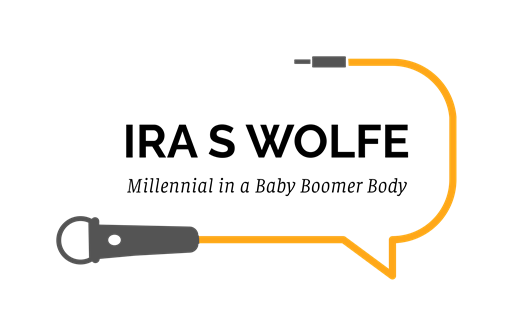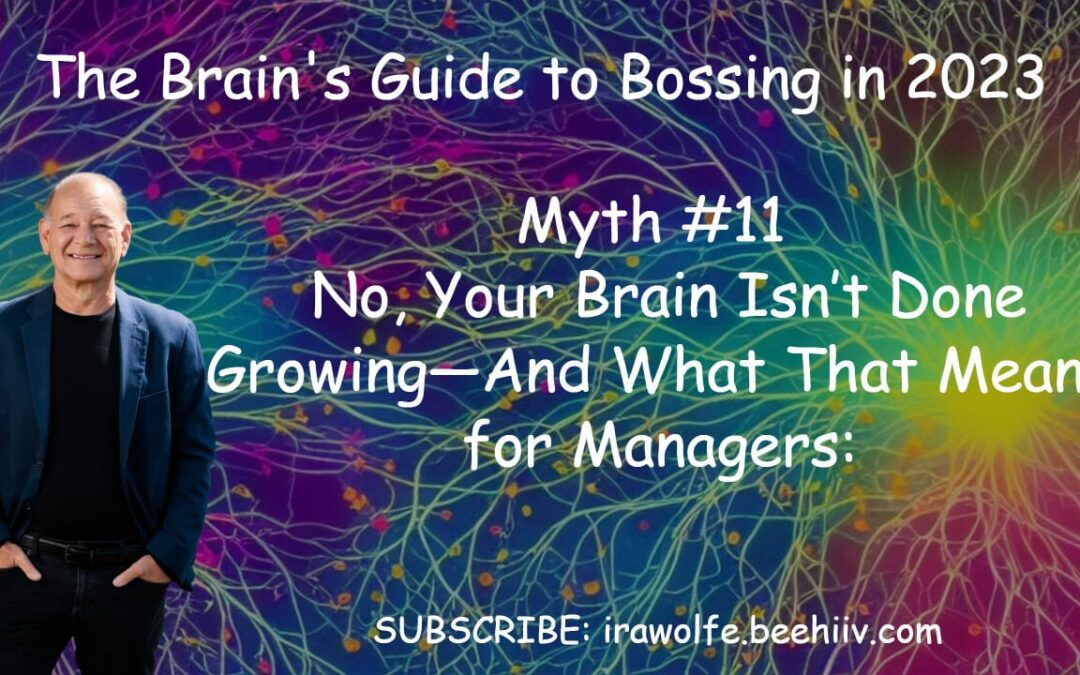No, Your Brain Isn’t Done Growing—And What That Means for Managers: Neurogenesis 🧠
Welcome back to our eye-opening series where we bust those pesky myths clinging to your managerial handbook like gum on your shoe.
Pssst… Managers, think your brain’s set in stone? Think you can’t teach an old dog new tricks? Let’s play myth-buster for a moment, shall we? This week, we’re diving into the magical world of Neurogenesis—you know, the birth of new neurons in your adult brain. No, it’s not science fiction; it’s just science!
How Does Neurogenesis Differ from Neuroplasticity?
First off, let’s drop a couple of buzzwords you might’ve seen floating around LinkedIn: Neurogenesis and Neuroplasticity.
Neurogenesis is the process of new neurons (brain cells) being born. And guess what? This keeps happening throughout your life. That’s right, you can teach that old brain new tricks!
Neuroplasticity refers to how the existing neurons in the brain change and adapt, forming new connections. It’s like your brain’s way of rewiring itself, just like you reconfigure teams for optimal productivity.
In other words, neurogenesis is about adding new team members (neurons), whereas neuroplasticity is about optimizing the team’s workflow and collaboration (connections).
Roles Neurogenesis Plays 🎭
1. Cognitive Flexibility
The arrival of new neurons promotes cognitive flexibility. That’s right, just when you thought you couldn’t teach an old dog new tricks—science steps in and says, “Hold my petri dish!”
Tip: Encourage your team to engage in diverse activities. It’s not just good for the soul, but also for the brain!
2. Emotional Resilience
New neurons help in the emotional regulation, making you less susceptible to stress. More neurons mean a more resilient you.
Activity: Promote mindfulness activities or stress-busting workshops to bolster emotional resilience among your team.
3. Memory Enhancement
Fresh neurons aid in enhancing memory and learning abilities. Think of them as an extra RAM installation in your organic computer.
Tip: Use gamification strategies to make learning a fun and memorable experience for your team.
Red Flags
🚩1. Stress Kills… Neurons
Chronic stress can put a damper on neurogenesis. Less neurogenesis may lead to cognitive rigidity and a “fixed” mindset.
🚩2. Lack of Physical Activity
A sedentary lifestyle isn’t just bad for your waistline; it’s a downer for neurogenesis too!
🚩3. Inadequate Nutrition
Fuel your neurons with healthy diets rich in omega-3 fatty acids, antioxidants, and other brain-loving nutrients.
Lightbulb Moments 💡
1. “Wow, Brain Gains!”
Neurogenesis is partly behind those “aha!” moments during problem-solving.
Tip: Give your team downtime to engage in lateral thinking. You’ll be surprised by the groundbreaking solutions they come up with!
2. “I’m Not as Stressed”
Discovering that you can grow new neurons might make you more relaxed and open to challenges.
Activity: Create a challenge-of-the-week program in the office. New neurons love new challenges!
3. “I Can Remember Names Now!”
Boosted neurogenesis can enhance memory, making you the name-recalling champion at every networking event.
Tip: Use mnemonic devices as memory hacks. Name recall improves relationships and rapport within and outside the team.
What’s Coming Next Week?
Alright, folks! Hold on to your neurons because next week we’re getting into the nitty-gritty of Brain Training Games. Do they work, or are they just another part of the app store clutter? Stay tuned to find out!
Until then, keep firing those synapses! 🎉💡
So, what do you think about neurogenesis now? A myth busted is a reality gained! Keep that in mind as you manage your dream teams to brilliance.
Catch you next week! 🚀
Ready, Set, Grow!
DON’T BECOME A HUMAN PAPERWEIGHT!
DOWNLOAD Your FREE* Copy of My New Book
It’s part of the fastest-growing personal development series in the world.
EVERY EMPLOYEE IN YOUR ORGANIZATION NEEDS A COPY!
Can I Ask A Favor?
Thanks for joining me again as I continue my myth-busting journey through the fascinating labyrinth of the human brain. I hope you’re enjoying my Brain Guide to Bossing series on debunking neuro-management myths enough to share this with just two connections.
If I didn’t earn your endorsement yet, please let me know what I need to do to improve.
And if you haven’t subscribed, please click here.

